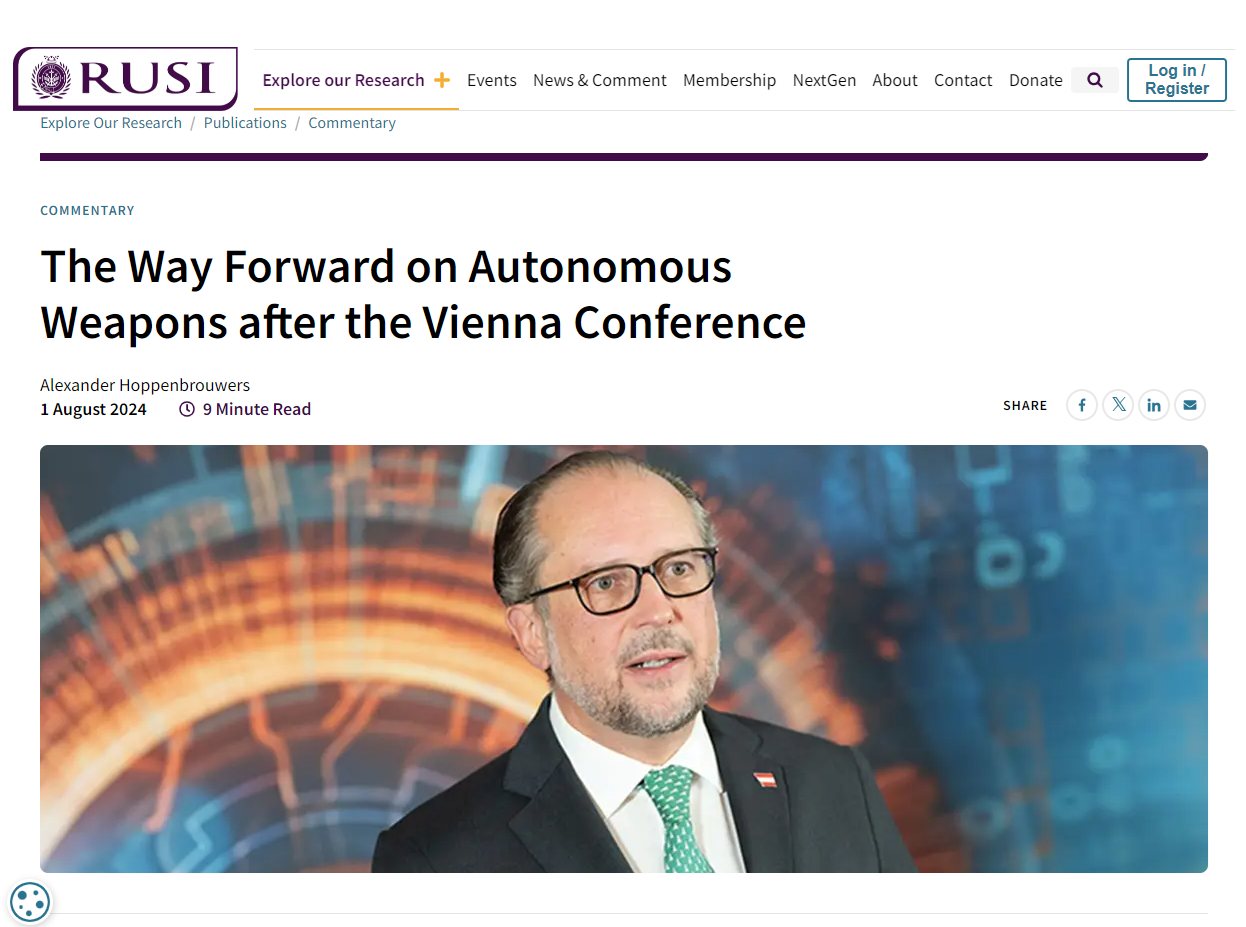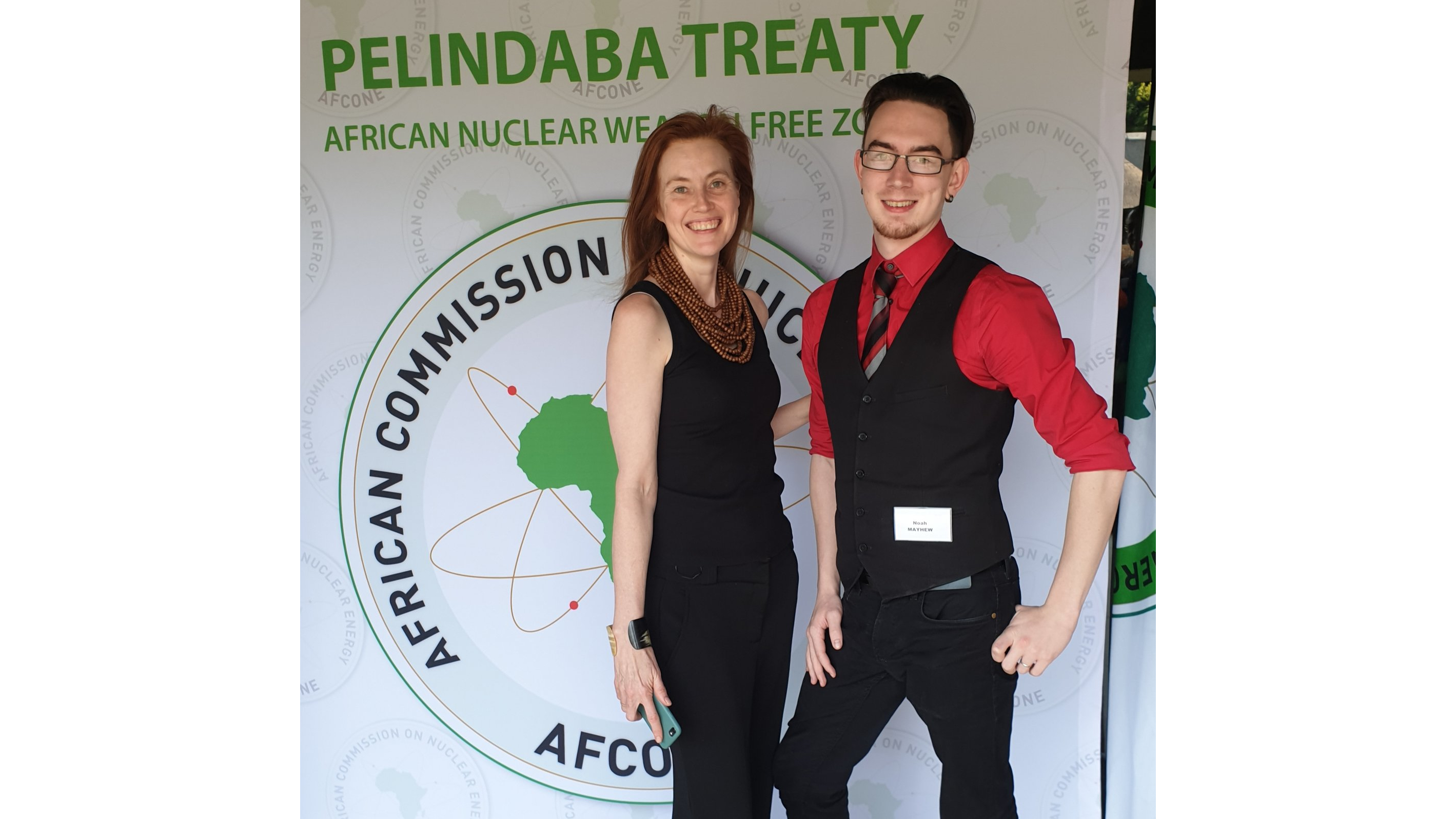
In a commentary piece published by the Royal United Services Institute, VCDNP Research Intern Alexander Hoppenbrouwers discusses the 2024 Vienna Conference on Autonomous Weapons Systems and its potential implications for international efforts to regulate autonomous weapons systems.

Mr. Hoppenbrouwers argues that the Vienna Conference was organised in an effort to push states to break with existing discussions on autonomous weapons systems, which have been progressing too slowly for those stakeholders seeking a strict, legally-binding instrument to regulate these systems. He highlights that moving towards such an instrument without taking into account the views of more hesitant states risks fatally harming ongoing discussions while producing an instrument that has little practical effect.
Mr. Hoppenbrouwers suggests that states aiming for a strict, legally-binding instrument should keep contributing to existing discussions to warm others up to the idea of such an instrument, and should aim for a more lenient, legally-binding instrument, complemented by stricter voluntary measures to maximise buy-in from more hesitant states.
“The suggested approach of seeking a lenient, legally binding instrument combined with stricter voluntary measures will prove highly challenging, and there is a real chance that even its optimal fulfilment will not lead to the achievement of the progressive states’ end goals. Using diplomacy to prevent the harm that autonomous weapons may inflict, however, means engaging productively with states that are willing to inflict this harm.”

